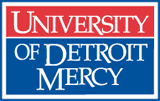Developing TranslinkeD Corridor Investment Strategies and Assessing their Socio-Economic Impacts on the Detroit Metropolitan Area and the Northwest Ohio Regional Community
Principal Investigators
- Dr. Hokey Min
Bowling Green State University
Co-Principal Investigators
- Dr. Utpal Dutta
University of Detroit Mercy
Project Dates:
09/01/2010 to 02/28/2012
Project year: Year 1
MIOH-UTC Project Identifier: SC 41
Focus Area:
- Research: Supply Chain
Abstract:
After reaching the peak population of 4.48 million in 2004, the Detroit Metropolitan Statistical Area (MSA) has been losing its population every year. Part of this decline is attributable to the gradual loss of the manufacturing jobs in the Detroit MSA. Between 2000 and 2005, the Detroit MSA lost more than 75,000 manufacturing jobs which were directly or indirectly tied to the “Big Three” automobile manufacturers. This job loss has continued up until today. Indeed, the manufacturing sector recorded the largest decline in employment in the Detroit MSA from a year ago. Additional losses of 19,500 manufacturing jobs in the Detroit MSA last year represented a 10% job decline which almost doubled the national manufacturing job decline of 5.2% (U.S. Bureau of Labor Statistics, 2010). To reverse this grim trend, the Detroit MSA has begun to shift its focus from a manufacturing to a technology-based knowledge economy. The future success of this priority shift often hinges on its infrastructure support. This infrastructure support includes an establishment of the fast communication and logistics links among the Detroit MSA, the Northwest Ohio region, and the Canadian borders. This establishment is called “TranslinkeD” by the Detroit Regional Chamber. The TranslinkeD aims to enhance multi-regional cooperation for technology development and multi-regional coordination of world-wide logistics activities by leveraging the regional logistics infrastructure and assets such as airports, river-ports, railroads, highways, bridges, terminals, and alternative fuels. To help the Detroit and Toledo Regional Chambers make the best use of their resources and revitalize the once depressed regional economy, this project will design the optimal intermodal network that can best exploit TranslinkeD as the NAFTA trade corridor, the international gateway to emerging economy across the global, while assessing the socio-economic and business impacts (including spill-over effects, traffic congestion, environmental quality, transit services, land development, supply chain efficiency) of TranslinkeD on the Detroit MSA and the Northwest Ohio regional community. In addition, this project proposes a viable investment strategy which will determine the scope of investment at each stage of TranslinkeD, estimate the return-on-investment (ROI) of the detailed project plans, and identify various funding sources (e.g., taxes, bonds, stimulus money, government grants, transit fares).
Final Report:
MIOH_UTC_SC41_2012-Final_Rpt_Developing_TranslinkeD_Corridor_Investment_etc.pdf
Total Budget: $101,605
Sponsorships:
US DOT, BGSU, UDM





